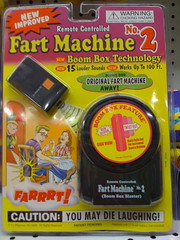 You know, I would really love to quit my day job and spend my time learning about information visualization, write about it, help people understand why good information visualization skills are relevant for their business.
You know, I would really love to quit my day job and spend my time learning about information visualization, write about it, help people understand why good information visualization skills are relevant for their business.
Now, I could try to speed up things by selling some crappy affiliate products, fill up the blog with Google ads or use some other “business model” internet marketers love. But that’s definitely not my model. I’m selling my Excel Dashboard Tutorial and writing an information visualization ebook. That’s what I like to do and that’s what I want to be paid for. And I’d like to promote good products (Jon’s Chart Utilities, Bonavista’s Microcharts or Tableau, for example) if I had the time to do it properly. But you’ll never see Google ads in my blog.
The Fart Machine
Displaying Google ads is a dangerous game that I don’t want to play. Here is an example. I was visiting an information visualization blog when I saw, right below the post title, a very visual “Online Fart Machine” ad (no, not the one above). I’m sure the blogger wouldn’t be pleased to see this kind of visuals in his blog, but that’s the risk of running Google ads.
This is what first time readers see when they arrive at your blog. It hurts your message, your credibility and probably your future income.
The Trojan Horse
It’s not the fart machine only. Since you have no or little control over Google ads, you may end up sending contradictory signals to your readers: you write about best practices, but your ads act like a Trojan Horse, advertising the worst possible practices. I see this all the time.
Premium Chartjunk
3D effects, backgrounds and shinny textures are well-known examples of chartjunk. I’ll call them the “regular chartjunk”. There is also the “premium chartjunk”. Every time you add clipart to your charts and presentations (because it’s funny or cute) you’re entering the realm of the premium chartjunk.
How can you avoid premium chartjunk? Remove any clipart and any kitten images and pictures and please, please, make sure you know what your audience defines as “bad taste”.
(And unless there is a very bizarre lateral thinking going on, I’m pretty sure a fart machine will not speed up your promotion or bring visits to your blog.)
Photo Credit: Chris Devers
I know this comes a bit late but I just could not help myself after reading this. The argument that displaying google ads “is a dangerous game” is flawfed at its very foundation. Your take that since the blogger has no control over what gets displayed, the reader can get the wrong message is akin to saying that TV producers should decide what ads to show when their soaps/serial are aired. I guess the remaining part is better left unsaid and all of us know what path will that lead to. Are you yourself not guilty of “peddling” a couple of books from Amazon? Spare a thought for those poor little bloggers, some of whom have Google ads as the only “real” source of income from their blog.
Regards,
Mark: I understand your point, but, unlike TV ads, the reader is getting two inconsistent messages at the same time, and that’s bad both for the blogger and for the advertiser. Can you imagine James Bond saying “BMW Z3 is such a lousy car” or something? If you find a link to a book that is inconsistent with my overall message, please let me know, and I’ll remove it. And no, consistency do not mean a single, dogmatic, version of the true.
If you say “x”, the ads shouldn’t say “not x”, no matter what. That’s what I believe in. I know the difference between editorial content and advertising content, and if I like a blogger I will not stop reading the blog just because of the ads. But it feels strange. Let me give you an extreme (but real) example. Trent, over The Simple Dollar (a blog about personal finance) removed “virtually” all ads in his blog. Why? Because “I finally realized that the real reason I write The Simple Dollar is to help bring about positive change in people’s lives, and when the site showed ads that really conflicted with that mission, I was undercutting what I want to do here” (here).
By the way, I think that “poor little bloggers” will never turn into rich probloggers if their main source of income are Google ads, but if that’s their business model, that’s ok with me, poor little blogger myself.